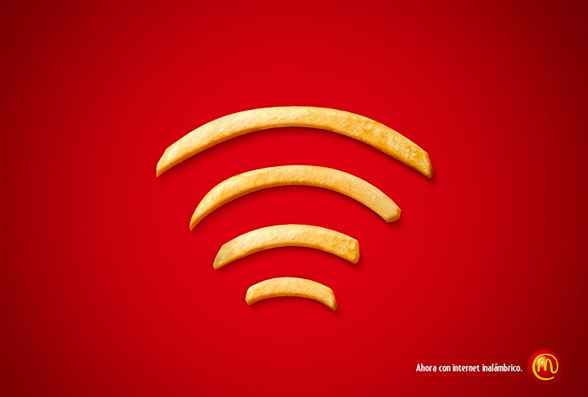Duas ações bacanas para o Dia Mundial de Combate ao Câncer
Posted in: Uncategorized
Hoje, dia 8 de abril, comemora-se o Dia Mundial de Combate ao Câncer. Além das já tradicionais campanhas de combate ao câncer, duas ações que aconteceram no terreno online chamaram a minha atenção.
A primeira delas pedia a doação de seu site, por um dia, para o GRAACC*. O site está vinculado ao site da Ogilvy e pede para que o dono do site inscreva sua URL e insira um código para que, no dia 8 de abril, o primeiro acesso ao seu site seja redirecionado ao site da GRAACC*. Abaixo, uma chamada da campanha e o exemplo do próprio site da agência ao receber uma visita minha hoje. Veja mais em http://www.beingmoredavid.com.br/doeseusite/


A outra ação, bastante interessante, é a doação de palavras da Instituto Mário Penna, desenvolvida pelas agências 3 Bits e RC Comunicação.
Via Twitter, qualquer usuário pode enviar uma mensagem de força aos pacientes com câncer assistidos pela instituição, que serão transmitidos em um telão para eles. Para tanto, basta utilizar a tag #doepalavras. Saiba mais sobre a campanha em http://www.doepalavras.com.br/.
A notícia é que todos aqueles que estão assistindo às mensagens do pessoal estão muito felizes, emocionando os criativos da campanha que acompanham a ação direto do hospital. Parabéns a todas as equipes envolvidas nos dois projetos!

Dicas de @andrepontual e @arthurpetrillo
* corrigido


 Mas o que um usuário ganha com uma prefeitura no Foursquare? Sim, todos os usuários que ali realizarem o seu check-in saberão que você é a pessoa que mais passa por ali. Quanto mais lugares legais você tem em seu portifólio de prefeituras, mais
Mas o que um usuário ganha com uma prefeitura no Foursquare? Sim, todos os usuários que ali realizarem o seu check-in saberão que você é a pessoa que mais passa por ali. Quanto mais lugares legais você tem em seu portifólio de prefeituras, mais 











 It’s out there and everyone’s talking about it. It’s been proven to give companies an edge on competition and the ability to form a bond with customers. So why aren’t you involved in social media yet?
It’s out there and everyone’s talking about it. It’s been proven to give companies an edge on competition and the ability to form a bond with customers. So why aren’t you involved in social media yet?
 Remember that song, “I always feel like, somebody’s watching me, and I get no privacy…?” Well, stop inviting people to watch you, and maybe they will. George Orwell’s 1984 has gotten a little too close for comfort these days, except that big brother is not the government or the media, it’s “We, the People.”
Remember that song, “I always feel like, somebody’s watching me, and I get no privacy…?” Well, stop inviting people to watch you, and maybe they will. George Orwell’s 1984 has gotten a little too close for comfort these days, except that big brother is not the government or the media, it’s “We, the People.” 
 Like the Robinson’s robot from Lost In Space, someone has obviously been warning “The Suits” at
Like the Robinson’s robot from Lost In Space, someone has obviously been warning “The Suits” at 

 be utilized; some from third party vendors that cause the pages not to load correctly or even hang your browser. Additionally, MySpace is not positioned like Facebook in regard to the “employment” factor. Facebook is setup to “brand” yourself to potential employers…which means that tend to keep it clean of profanity in the headings, as well as use actual names rather than online IDs. But, then again, maybe that is part of its charm. Facebook has experienced their share of problems; they’ve disenchanted some of their members with sweeping changes to their privacy policies (although later rescinded), and have changed the user interface, much to the chagrin of many. In fact, many demand that the “old” Facebook be brought back. Finally, Facebook CEO, Mark Zuckerberg, seems to be a wild card that holds the future of the site in his hands, as evidenced by the mysterious departure of Chief Financial Officer, Gideon Yu. Yu’s departure was the latest change of several in the upper ranks at Facebook, “
be utilized; some from third party vendors that cause the pages not to load correctly or even hang your browser. Additionally, MySpace is not positioned like Facebook in regard to the “employment” factor. Facebook is setup to “brand” yourself to potential employers…which means that tend to keep it clean of profanity in the headings, as well as use actual names rather than online IDs. But, then again, maybe that is part of its charm. Facebook has experienced their share of problems; they’ve disenchanted some of their members with sweeping changes to their privacy policies (although later rescinded), and have changed the user interface, much to the chagrin of many. In fact, many demand that the “old” Facebook be brought back. Finally, Facebook CEO, Mark Zuckerberg, seems to be a wild card that holds the future of the site in his hands, as evidenced by the mysterious departure of Chief Financial Officer, Gideon Yu. Yu’s departure was the latest change of several in the upper ranks at Facebook, “


 Today, as I was feverishly submitting resumes and simultaneously reading about the economy (multi-tasking for all you would-be employers), I came across ”Ten Winners in the Recession” on
Today, as I was feverishly submitting resumes and simultaneously reading about the economy (multi-tasking for all you would-be employers), I came across ”Ten Winners in the Recession” on 